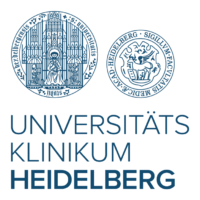Warning: Undefined array key "file" in /home/www/Kunden_MED/SFB1129_202005/wp-includes/media.php on line 1723
Deprecated: preg_match(): Passing null to parameter #2 ($subject) of type string is deprecated in /home/www/Kunden_MED/SFB1129_202005/wp-includes/media.php on line 1723
Introduction
SFB 1129 was established in 2014 and is currently in its 2nd funding period.
SFB 1129 plans to obtain an integrative perspective on the mutual interplay of pathogen and host factors determining the outcome of an infection for individual events in systems of different complexity and at high spatial and temporal resolution.
Integration on several levels: scales, complexities, disciplines.
In SFB 1129 researchers from different disciplines …
…comprehensively analyse replication and spread of human pathogens in a quantitative manner at high temporal and spatial resolution and at the level of stochastic events.
…delineate the influence of physical parameters and extracellular matrix on pathogen success and control.
…directly determine the course of individual pathogens and host countermeasures in culture systems of increasing complexity.
SFB1129 – Introduction Prof. Dr. Hans-Georg Kräusslich Dept. of Infectious Diseases – Virology
SFB1129 – Team 2017
SFB1129 – Project 1
Deciphering receptor-ligand interplay during rapid motility of Plasmodium sporozoites
Frischknecht, Friedrich
Dept. of Infectious Diseases – Parasitology
Spatz, Joachim
Institute of Physical Chemistry (PCI) & MPI-IS
SFB1129 – Project 6
Dynamics of events in HIV-1 replication
Müller, Barbara
Dept. of Infectious Diseases – Virology
SFB1129 – Projekt 11
Spatial and temporal coordination of RNA translation, replication and assembly in a membranous plus-strand RNA virus replication factory
Bartenschlager, Ralf
Dept. of Infectious Diseases – Molecular Virology
Rohr, Karl
Dept. Bioinformatics and Functional Genomics
SFB1129 – Beschreibung und Projektvideos in Deutsch
Ziel des SFB 1129 ist es,
ein integratives Bild der komplexen Wechselwirkungen zwischen Krankheitserreger und Wirt zu gewinnen, die den Verlauf einer Infektion bestimmen. Hierfür betrachten wir individuelle Ereignisse in Systemen mit unterschiedlicher Komplexität mit hoher zeitlicher und räumlicher Auflösung.
„Integrativ“ bedeutet dabei die Integration auf unterschiedlichen Ebenen: Größenordnungen und Zeitskalen, Komplexität der biologischen Systeme, wissenschaftliche Disziplinen.
SFB1129 – Einführung Prof. Dr. Hans-Georg Kräusslich Dept. of Infectious Diseases – Virology
SFB1129 – Team 2017
SFB1129…
…wird die Replikationsschritte einzelner Krankheitserreger und die Abwehrmechanismen des Wirtes in Kultursystemen mit zunehmender Komplexität verfolgen.
…wird den Einfluss von physikalischen Parametern sowie von extrazellulärer Matrix auf den Replikationserfolg bzw. auf die Kontrolle des Erregers bestimmen.
…wird die Replikation und Ausbreitung von humanpathogenen Erregern umfassend quantitativ mit hoher zeitlicher und räumlicher Auflösung, sowie auf der Ebene von stochastischen Ereignissen, analysieren
SFB1129 – Project 1
Deciphering receptor-ligand interplay during rapid motility of Plasmodium sporozoites
Frischknecht, Friedrich
Dept. of Infectious Diseases – Parasitology
Spatz, Joachim
Institute of Physical Chemistry (PCI) & MPI-IS
SFB1129 – Project 6
Dynamics of events in HIV-1 replication
SFB1129 – Projekt 11
Spatial and temporal coordination of RNA translation, replication and assembly in a membranous plus-strand RNA virus replication factory
Bartenschlager, Ralf
Dept. of Infectious Diseases – Molecular Virology






